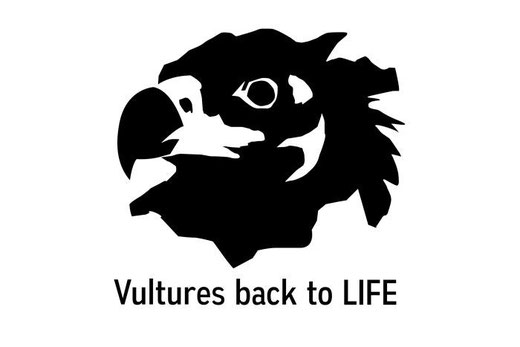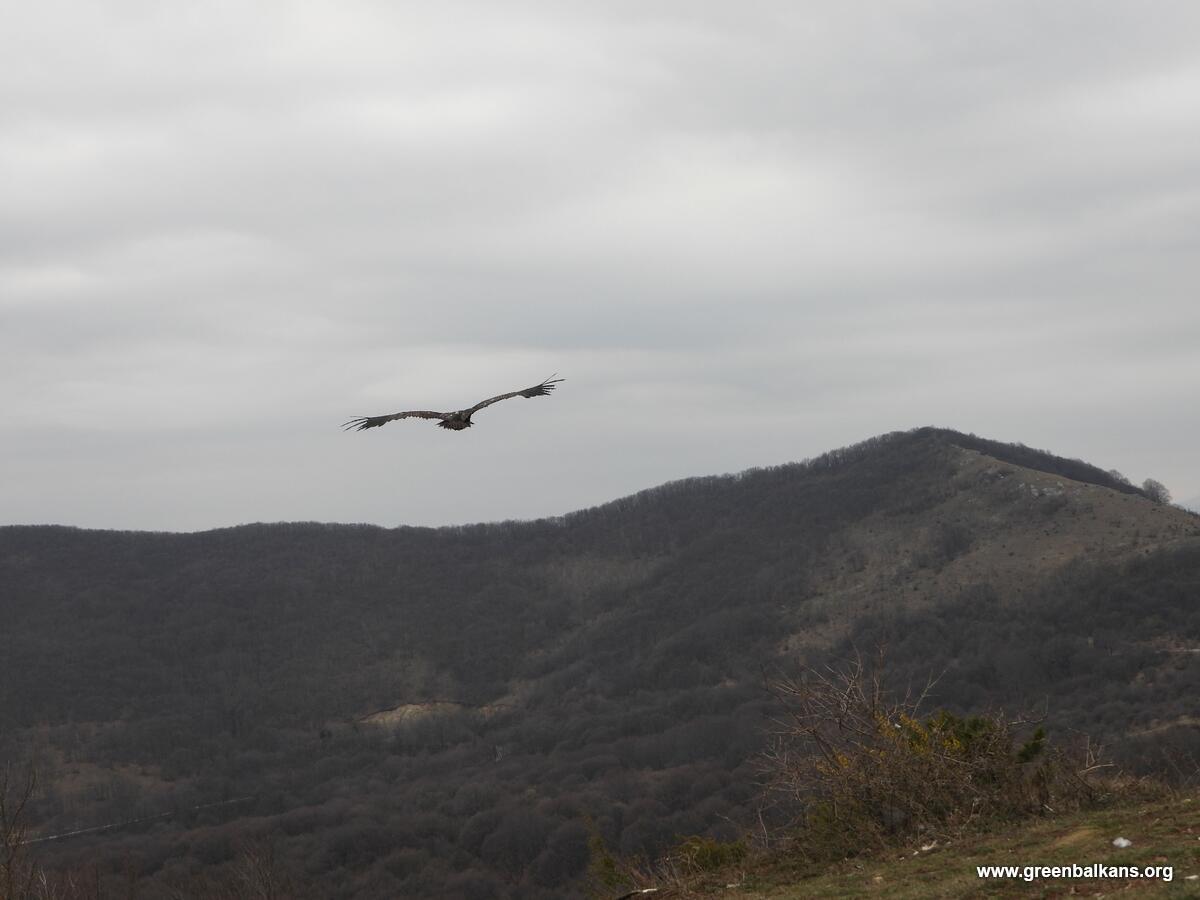
International experts who specialise in rearing and breeding Cinereous Vultures visited our partners at the Green Balkans’ Wildlife Rehabilitation and Breeding Centre in Bulgaria to share their experience and knowledge. This collaboration will aid the conservation of the species in the country, which is vital for the Vultures Back to LIFE project.
Exchanging knowledge

On 6 August, during an official event, the Vultures Back to LIFE project released two Cinereous Vultures in Kotel, Bulgaria. Right after, three of the guests, Matthieu Marc and Olivier Vercauteren from the Belgian zoo Planckendael and Laurent Marc Simon from the French zoo Parc des Oiseaux, visited the Green Balkans’ Wildlife Rehabilitation and Breeding Centre to share their experience. Olivier and Laurent were keepers of the parental pairs of the two juvenile Cinereous Vultures that hacked in Kotel Balkan. Olivier has also been taking care of the foster parents of the chick from Parc des Oiseaux, which was significant for its survival. During their visit, the experts examined the release site, and they were also interested in learning more about the Center, specifically about the activities related to the Vultures Back to LIFE project.
The experts examined the breeding cages and the incubation room, and they were especially impressed by the surveillance cameras, providing twenty-four-hour access to the vultures in the Center, as well as to the birds in the adaptation aviary in the Central Balkan.
Contacts with international experts in breeding Cinereous Vultures are significant for Bulgaria and the Green Balkans’ team, which is still gaining experience in rearing this rare species.
Vultures Back to LIFE

Led by the wildlife conservation charity Green Balkans, with activities also implemented by the Fund for Wild Flora and Fauna, and bringing together partners from Bulgaria, Spain, Germany, and us here at the VCF, Vultures Back to LIFE aims to reintroduce the cinereous or Eurasian black vulture to Bulgaria. The team will transfer and release around 60 birds, some from captive-breeding, but mostly coming from wildlife rehabilitation centres in Extremadura (Spain) into the wild in Bulgaria as well as creating supplementary feeding stations and improving populations of wild herbivores, improving the nesting conditions and creating artificial nest sites and tackling some of the major threats to vultures in the country such as insulating electricity pylons and illegal use of poison in nature.




